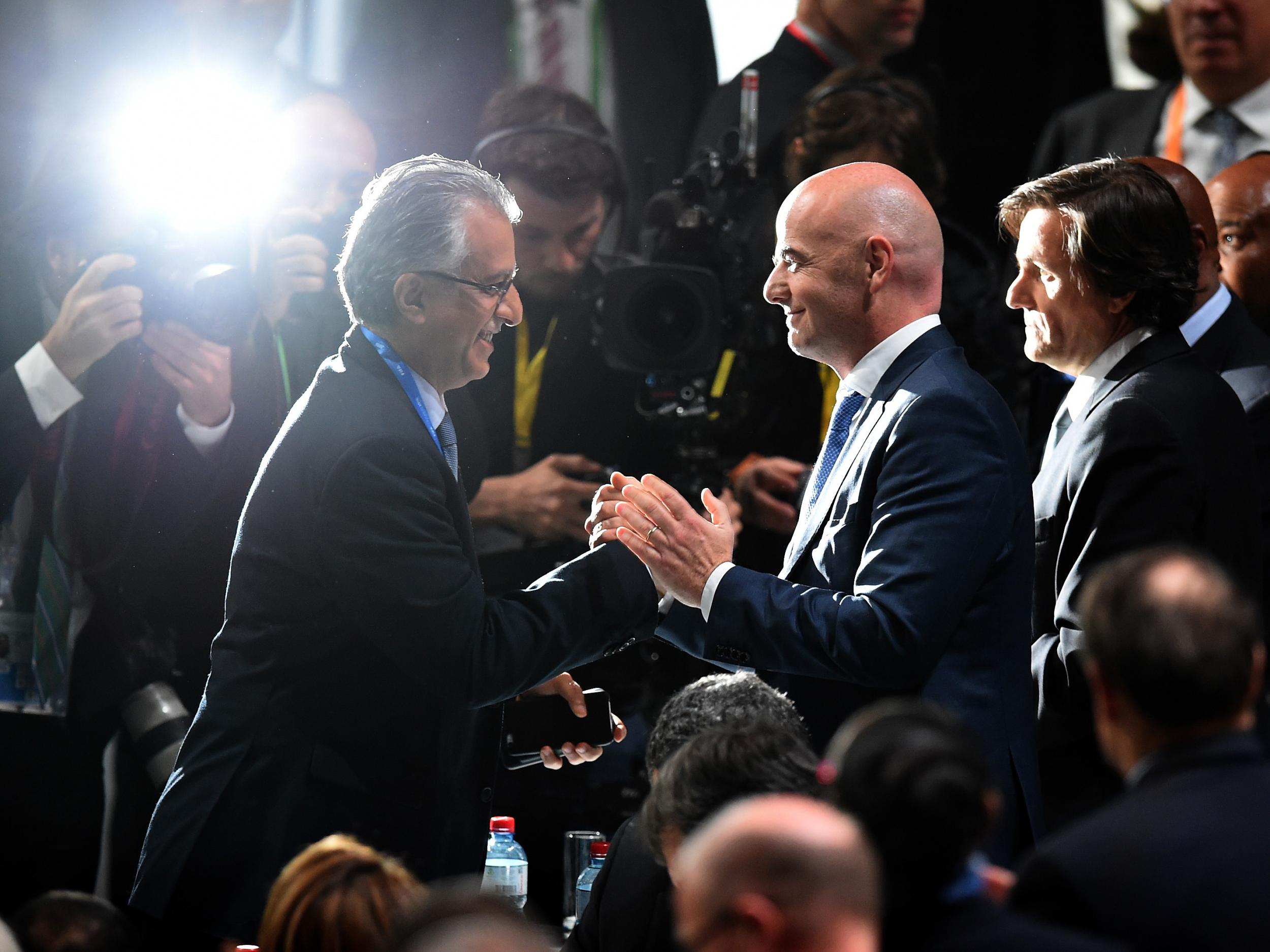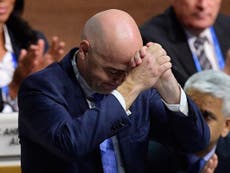We may be cynical about Gianni Infantino, but at least Fifa has proved that it has potential
Though there were some stunts in Infantino’s final pitch for the job - he switched between a myriad of languages for instance – the undisguisable core message struck a chord. It was that he wanted millions more of Fifa’s $5.5 billion revenue to be redistributed back to the countries

Those who are looking for evidence that the new man will put action above artifice, principles above PR, may be dismayed to discover that Day One of the Gianni Infantino era will bring a football match involving those who he persuaded to add stardust to his campaign. Infantino promised that Jose Mourinho, Luis Figo, Roberto Carlos, who were in the front row for his London manifesto launch at Wembley, would participate in the game, to be placed outside Fifa HQ on Saturday. Sir Alex Ferguson, who added his seal of approval in line with Uefa's David Gill, will probably not.
“All those who want to come; all of you, the representatives of the media, can come and join us,” Infantino declared at the launch, though when it came to submitting himself to journalistic interrogation he was far less accommodating. Infantino, who only found himself in the contest because his Uefa boss Michel Platini was banned, has not been disposed to giving one-to-one interviews.
We don’t entirely know if this is a case of job for the boys. We don’t know how much energy for change he will display or whether he, like Lord Sebastian Coe - another presidential appointee helped to power by a powerful London PR strategists Vero campaign - will obfuscate and dissemble over the difficult clean-up decisions. He has been certainly highly evasive on the awkward questions – such as Uefa’s failure to tackle match-fixing in Turkey. “At one stage, a renowned French journalist was in possession of the microphone, ready to ask [the] difficult question. The next second, as if by magic, the micriphone had gone from his hand,” the journalist and Fifa specialist James Corbett wrote recently, describing the London launch for the Sporting Intelligence website.
Corbett also points to the irony of Infantino, Uefa's Swiss-Italian general secretary, also hailing from a village along the very same stretch path of the Rhone as Sepp Blatter: a 9km walk which would take two hours or so, which means the Swiss canton of Valais has extended its hold on the presidency into its third decade. He has also been queasily evasive about how much money Uefa pays him. ‘A lot less than £4m’ is about as near as we’ve got, which was Blattersesque. But though we really do have no idea whether Infantino, a lawyer turned Uefa career man with 17 years at Nyon behind him, has a backbone to match the undeniable, his election represents as substantial a salvation as football could have asked for.
At the very least, it rescues the governing body from the prospect of governance at the hands of Bahraini Sheikh Salman bin Ebrahim al-Khalifa – the man who closed his pitch for the top job by declaring that “I would confirm I am one of you.” This, from a scion of the ruling family in a country where pro-democracy protestors were brutally repressed five years ago. Even as Salman spoke yesterday, security forces were out on the streets of Bahrain capital Manama in numbers rarely seen since that 2011 crackdown. The motives for their presence were a mystery.
Salman was the one who was relying on the football nations of Asia and Africa to vote blindly, mindlessly and en bloc, in lne with their federations. Perhaps that is the mind set when democracy runs so against the grain. But instead, intelligently and imaginatively, countriesw did not follow the federation line. They voted freely and individually. The African and Asia football confederations were not of one voice. That’s what democracy looks like.
Though there were some stunts in Infantino’s final pitch for the job - he switched between a myriad of languages for instance – the undisguisable core message struck a chord. It was that he wanted millions more of Fifa’s $5.5 billion revenue to be redistributed back to the countries. “If Fifa generates $5bn revenue is it normal for $1.3bn cannot be redistributed?” Infantino asked. “What does Fifa do with $5bn? Are you telling me that is a problem.”
Salman, looking to preserve the central pot, tried to proclaim this was profligacy, though that argument – disseminated through this campaign – did not wash. When Infantino declared to all the nations in conclusion that “the money of Fifa is your money” the applause rang out. It was in that moment you felt that for all the suspicions that one of Blatter’s ilk has been voted to power, he had called it right. This election speaks for a desire to do away with the power and the fat of the centre and, in some way, to democratise the game.
It will take infinitely more than his election, which comes with a promise to extend the World Cup from 32 to 40 teams, to repair the governing body’s battered reputation. But it can at least be said that Fifa, now equipped with a series of highly significant new statutes designed to insulate apparatchiks from commercial deals, has the potential to drag itself up from the dust. There are grounds to be thankful for that.



Join our commenting forum
Join thought-provoking conversations, follow other Independent readers and see their replies